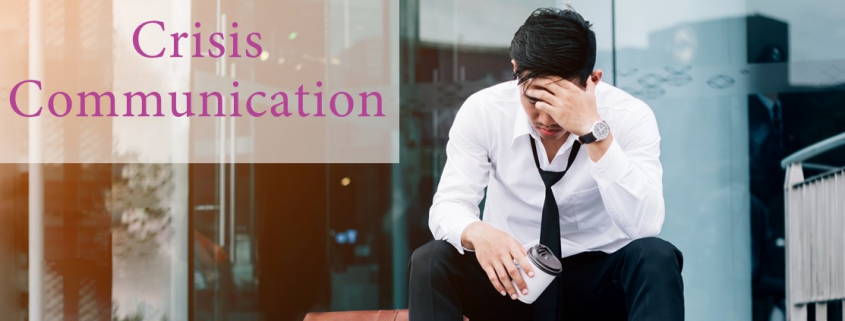A PR crisis can happen fast. An unexpected event ripples throughout the company and executives go into crisis mode, seeking shelter in the boardroom. Employees whisper in the hallways. And, once that crisis spreads to the outside world, public companies often watch in horror as the stock price plummets.
But there are things you can do in a PR crisis. That was the topic of the latest Pub Club event, which took place last night at Hotel 140 in Boston. During “Reputation Management in the 24/7 Media Environment: Best Practices in Crisis Communications,” four experts spoke about how companies can handle a PR crisis. Here are five takeaways from the panel.
1. Don’t Wait Too Long to Share Details
As Justine Griffin, Principal and head of the issues management practice at Rasky Baerlein put it: “The longer you wait, the harder it is.” If a company has a crisis, there needs to be immediate action. Don’t hesitate to make a plan that can scale according to the size and length of the crisis. When it comes to crisis communications, it’s important for businesses to acknowledge that there’s a problem, because if it only gets worse behind closed doors, there will only be more consequences when those doors finally open.
2. But Don’t Give Too Many Details
The panelists spoke at length about the data breach scandal that’s currently wracking Target retail stores. One of the problems, according to Griffin, was that Target had publicly given a number of breached cards too early. When the number turned out to be bigger than originally thought, Target had to again let consumers know – effectively doubling consumer backlash.
Maureen T. Wolff, President and Partner at Sharon Merrill, agreed. She said that, when it comes to any kinds of press statements, it’s best to keep them short. Companies need to wait until they have all the details on the situation before proceeding with a solid course of action.
“Boring is allowed,” Wolff said.
3. Plant Some Decision Trees
Serena Ehrlich, Director of Social Media at BusinessWire, said that one of her favorite things was the decision tree. To make sure that a crisis can be solved quickly, companies should already have decision trees in place for any number of potential problems. That way, if something does happen, there’s a very logical course to follow: if X, then Y. If Z, then A.
While Ehrlich said that social media responses shouldn’t be canned, copy-and-paste interactions, they can be planned.
4. Use Social Media to Predict and Monitor
Ehrlich went on to say that social media was a powerful tool to predict a crisis. “If your company is getting twice as many mentions as normal, that could indicate that something’s wrong,” she explained. “A lot of things start on social media.”
When a company knows what number of mentions constitutes a normal day on social media – and what doesn’t – that can be an important indicator. If there’s significantly more mentions than average, that’s when it’s time to pay attention.
During a crisis, too, is a great time to log onto real-time channels like Twitter. Robert Noon, Chief of Public Safety, Massachusetts Convention Center Authority, explained that he was skeptical when the organization first started using Twitter – but when there was a car fire in a Boston parking lot in 2010, Twitter was one of the organization’s best sources of information.
He went into detail about how it’s possible now to monitor sentiment and even use geo-spatial recognition from Twitter to better serve the city of Boston.
5. Tell Employees Something
It’s tempting for executives to try as hard as they can to keep a PR crisis locked in the board room. The problem with that approach is that employees will end up hearing tidbits – or worse, speculation – and news will spread anyway.
The panel explained that the best approach was to tell employees that something is happening at the company, but to not go into detail. Sometimes, that can even spur collaboration, because employees will want to know what they can do to help.
Social Media in the Age of the Crisis
Most companies know by now that social media can have an unprecedented ripple effect when it comes to bad PR. Sometimes, though, that ripple effect can be beneficial. Ehrlich mentioned the importance of “social alliances.” If a company is engaged on social media and building an active base of fans, then those fans can be influencers in a time of crisis, too.
Entrepreneur and social media expert Peter Shankman was also in attendance at the event. He speculated that, in 2014, companies would react faster and smarter to problems on social media.
“PR and marketing are combining into customer service,” he explained. “And PR will be smarter for it.”
//
This post was first published by Cheryl Gale on March Communications’ blog PR Nonsense.

